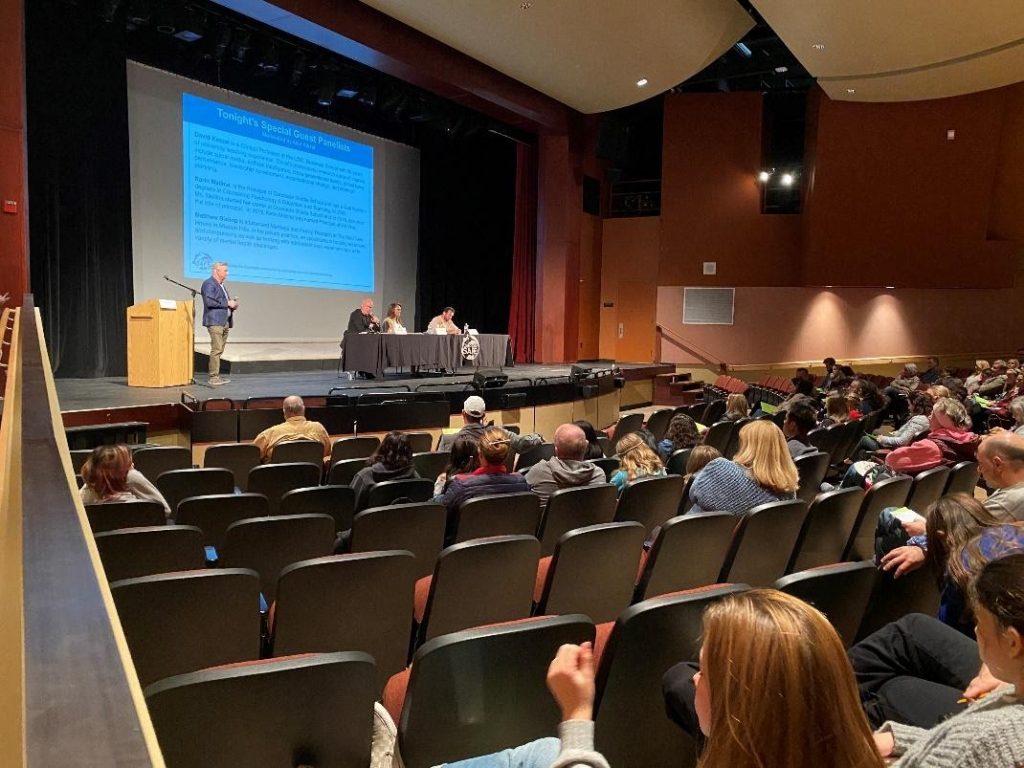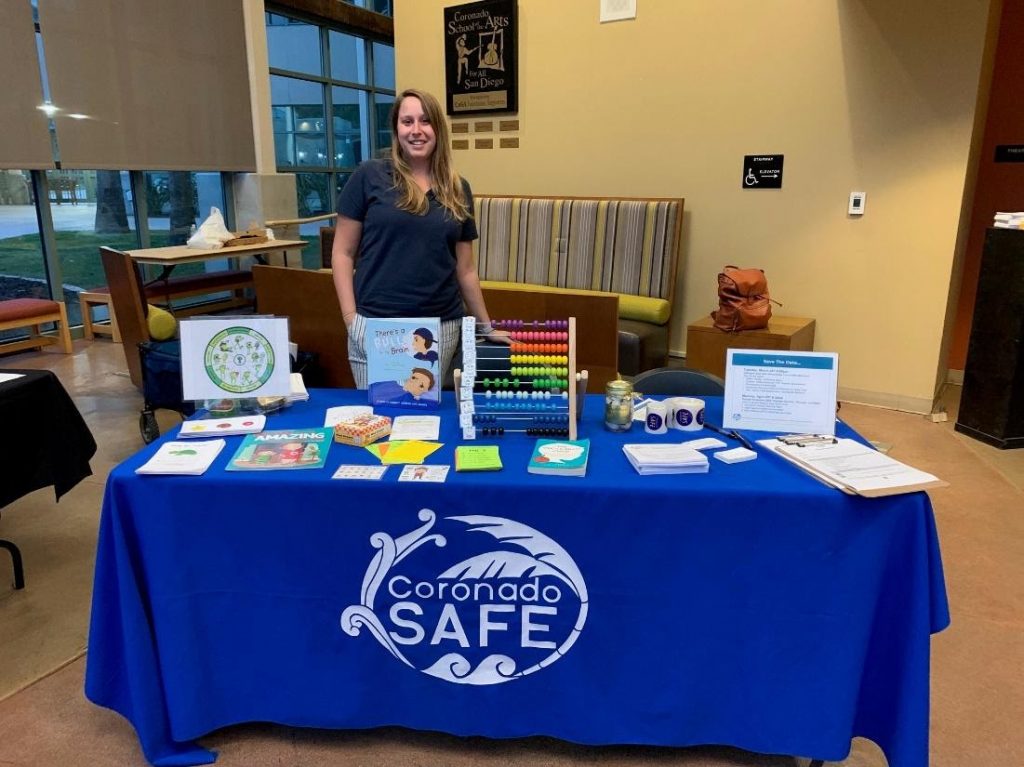
Smartphones are now an essential part of our lives. More than 2 billion people own a smartphone and on average, people check their phones more than 150 times a day. This brings up the question: how does this dependence on technology impact our lives? Coronado gained more insight on this topic with the February 3 showing of the documentary, LIKE. Coronado SAFE and Buona Forchetta sponsored the screening at the Coronado High School theater to prompt a community discussion on the impact of social media on our lives.
Over 150 people purchased tickets prior to the event with another 100 people buying tickets at the door. Attendees included a mix of youth, parents, community members, friends, and Coronado schools’ staff. On average, children in the United States get their first smartphone around 10 years old and 50% of 12 year old children have social media accounts (primarily Facebook and Instagram). Coronado likely follows this national trend so the screening was widely promoted to local families of children ages 10 and up. The 49 minute documentary discussed the impact of social media across our social, emotional, physiological, academic, and occupational functioning. The movie featured the perspective of medical experts but also included children and teens sharing their personal experiences with social media. In closing, the documentary presented ideas on how to balance the use of apps and technology so they can positively impact our lives. Members of Coronado High School Reserve Officer Training Corps (ROTC) volunteered at the event to hand out printed information with further resources on technology use.

Following the documentary, attendees heard a panel of speakers address the topic of social media. The panel, moderated by Alan Kinzel, featured David Keszei, a university professor, Karin Mellina, CMS principal, and Matt Bishop, a licensed marriage and family therapist in private practice in San Diego. The panelists answered questions from the audience that included tips and strategies on how to utilize social media and technology as well as ways to open communication to manage the social-emotional effects of usage. The panel encouraged parents to consider “dumb” phones for their younger children which offer phone calling functionality without access to smart features such as social media. Principal Mellina also assured the middle school students in the audience that she had no plans to modify the current cell phone policy at Coronado Middle School. Attendees left the event with a new appreciation for the tremendous impact smart phones have in our lives along with the need to manage their use responsibility. Seventh grader Colin Thoms attended the movie with his mother and shared, “I received my first phone for my birthday a while back. Recently, I have been spending a lot of time on it. However, when my mom told me about this movie, I was curious to watch it. My takeaway was that I needed to spend less time on my phone. Now, I have more time to do my homework and hang out with my friends.” The awareness of how much technology can have an impact on our lives, and starting limits early on, can positively affect future usage.




